Japanese Car Names: All Japanese Car Brands Names & Meaning

Delve into the enchanting world of Japanese car names, where every brand’s name tells a story, a blend of heritage, innovation, and vision.
From Toyota to Suzuki, each brand resonates with unique tales and deep cultural significance.
Let’s embark on this journey, uncovering the essence of Japan’s automotive giants, known as much for their quality as for the profound meanings behind their names.
1. Toyota (トヨタ)

Imagine the blend of tradition and luck in Toyota’s name.
Originally called “Toyoda,” after the founder Kiichiro Toyoda, the brand’s name was changed to Toyota as it sounded more appealing.
In Japanese, Toyota uses eight strokes to write, symbolizing prosperity and good fortune – a lucky charm for a global automotive leader.
2. Honda (本田)

Honda, or 本田, translates to “original rice paddy,” reflecting a bond with nature and the founder’s name, Soichiro Honda. It’s a symbol of growth, sustenance, and a tribute to the founder’s vision of creating vehicles in harmony with the environment.
3. Nissan (日産)
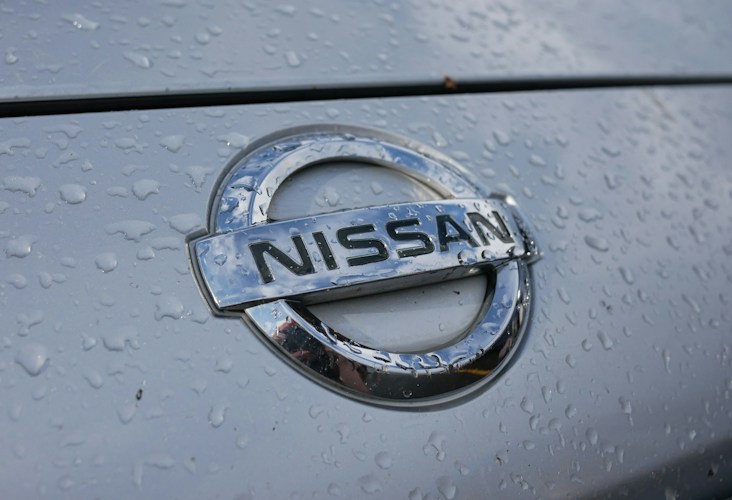
Nissan, written as 日産, combines characters for “sun” (Nichi) and “production” (San). This name is a poetic nod to Japan, the land of the rising sun, embodying the essence of its Japanese roots in every car they create.
4. Mazda (マツダ)
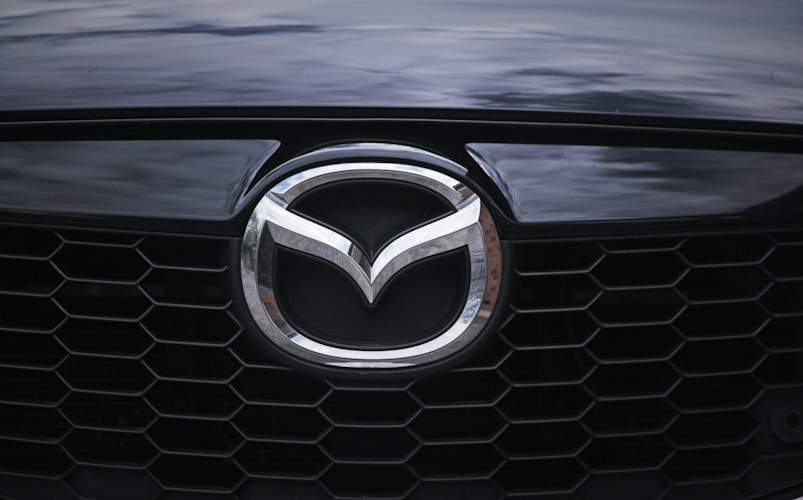
Mazda, named after its founder Jujiro Matsuda, also resonates with Ahura Mazda, the god of wisdom. It’s a brand that signifies enlightenment, symbolizing the pursuit of innovation and harmony in the auto world.
5. Subaru (スバル)
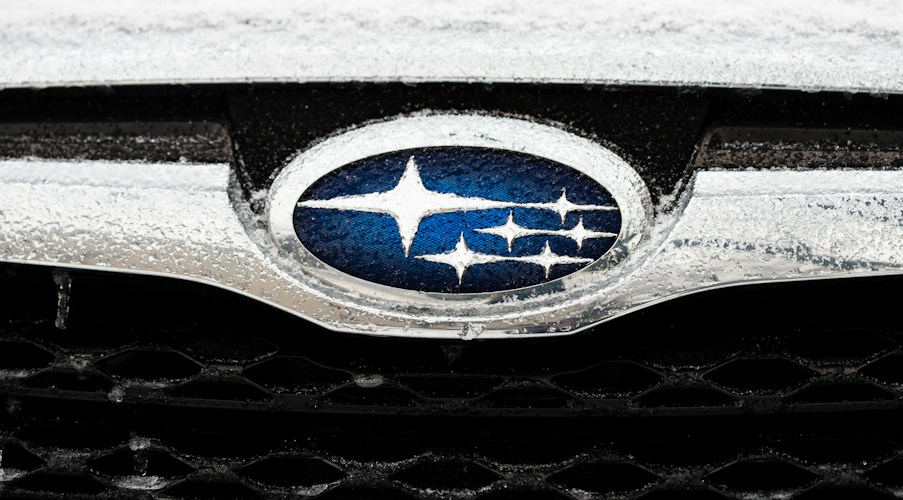
Subaru, written as スバル in Japanese, signifies the Pleiades star cluster. It’s a celestial homage to unity and ambition, mirroring the merger of several companies to form Fuji Heavy Industries, with Subaru shining as its automotive star.
6. Mitsubishi (三菱)
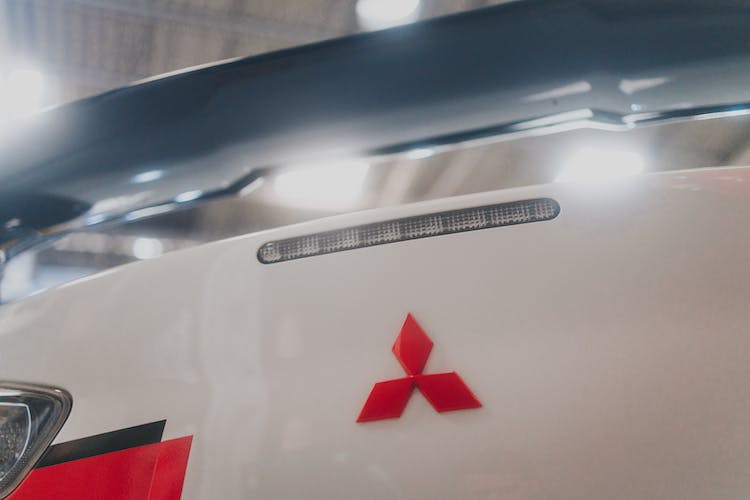
Mitsubishi, or 三菱, beautifully translates to “three diamonds.” This name, inspired by the founder’s family crest, symbolizes durability and elegance, a fitting emblem for a brand that combines strength with sophistication.
Related Article: Mitsubishi EVO vs Subaru WRX STi
7. Lexus (レクサス)

Lexus, Toyota’s luxury spin-off, might not have a direct Japanese translation, but it’s a name synonymous with luxury and elegance. It’s a brand that speaks to those who appreciate the finer things in life, crafting cars that blend opulence with performance.
8. Suzuki (鈴木)
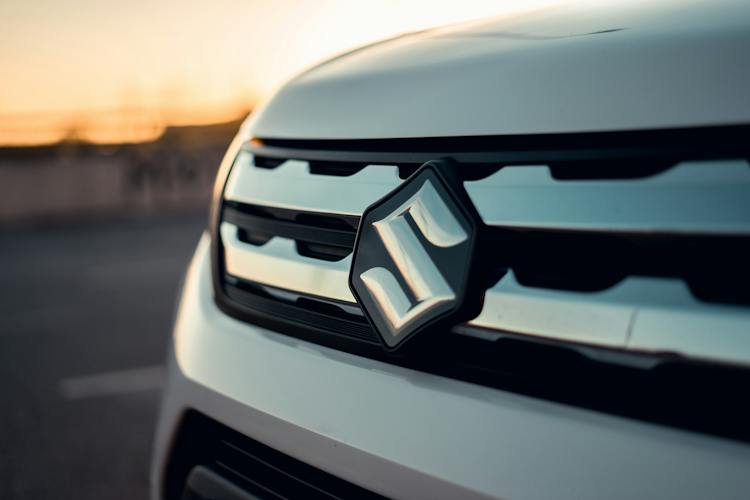
Suzuki, or 鈴木, meaning “bell tree,” mirrors the brand’s philosophy of simplicity and connection to nature. Founded by Michio Suzuki, it’s a name that rings with innovation and reliability in the realm of compact and efficient vehicles.
9. Daihatsu (ダイハツ)

Daihatsu, abbreviated from Osaka Hatsudoki Seizo, translates to “Osaka Engine Manufacturing.” It’s a name that honors its roots in engine production, symbolizing the brand’s focus on compact, efficient cars.
10. Isuzu (いすゞ)
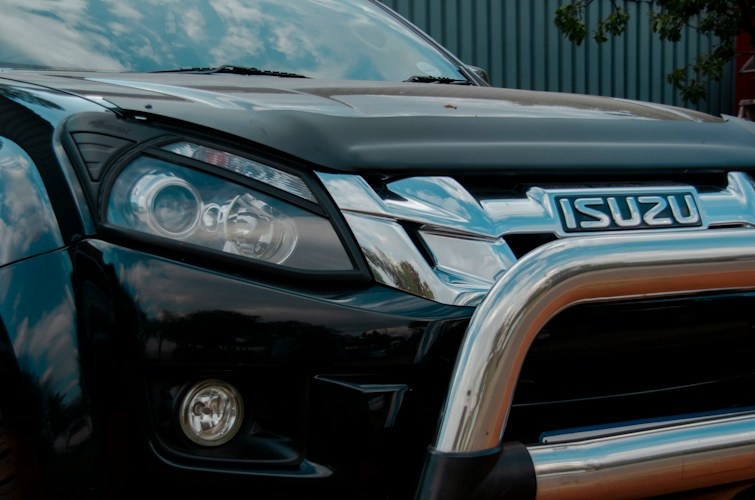
Isuzu, known as いすゞ in Japan, takes its name from the Isuzu River. It’s a symbol of purity and clarity, reflecting the brand’s commitment to clear engineering and environmental consciousness.
Final Words: Japanese Car Names (History & Story)
From Toyota’s strokes of luck to Subaru’s starry inspiration, Japanese car names offer a window into a culture that beautifully blends technology with tradition.
These names are not just logos on a car; they are stories of innovation, dreams, and a deep connection to their cultural roots.
If you’re obsessed with JDM then you need to check out our Japanese Car Culture article and find out more about what makes the car scene in Japan so special.


